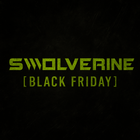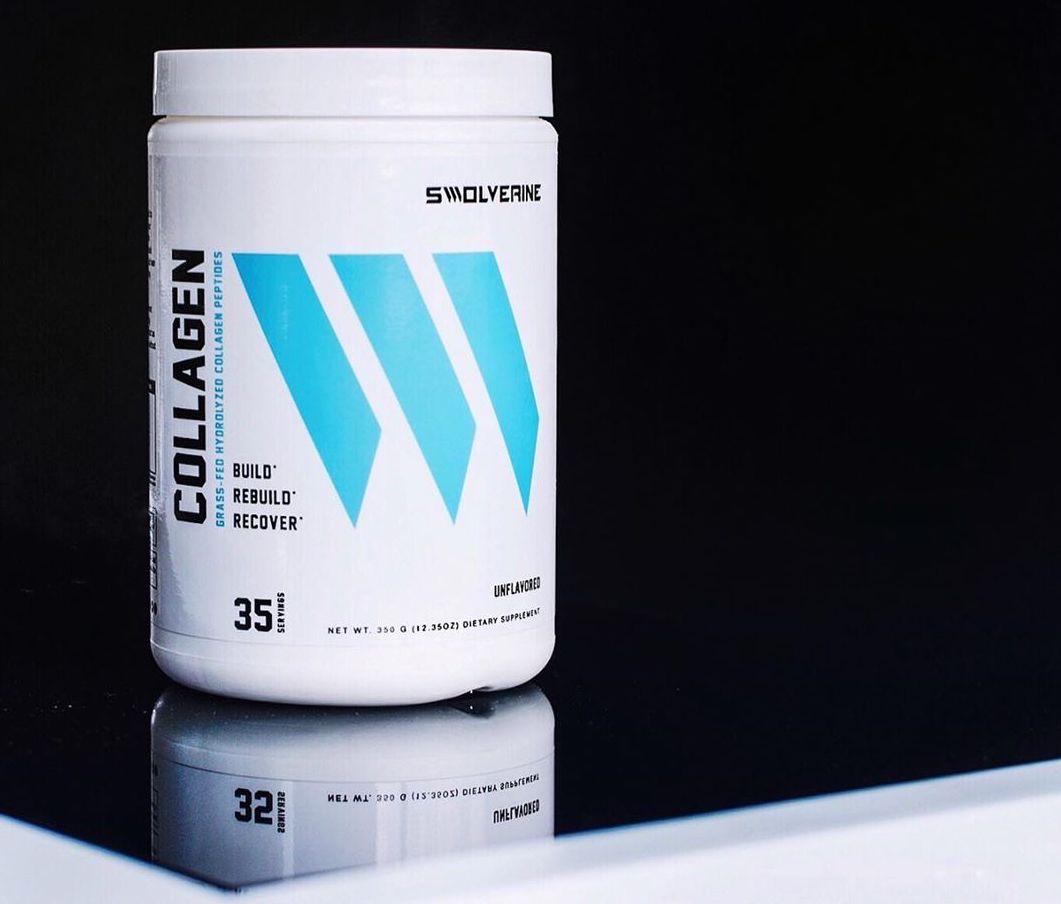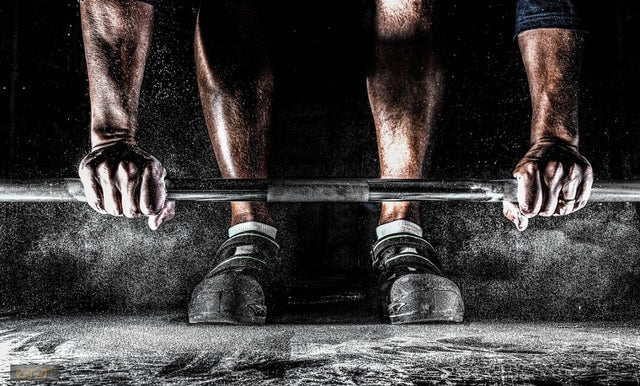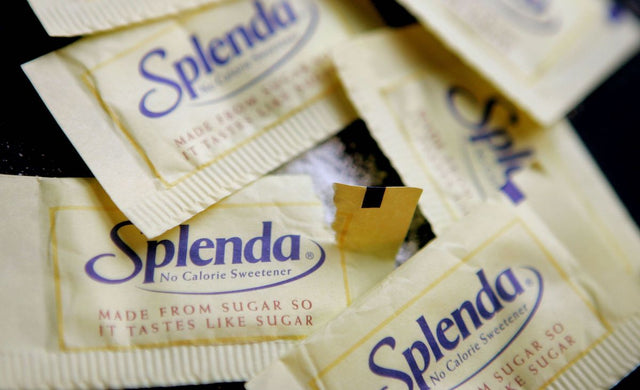I drink a protein shake nearly every day. Whether it’s in the morning for a quick and easy breakfast or after my 5:30 workout to help my body rebuild and recover, protein shakes are an easy and convenient way to get nutrients in without giving into the common pitfall of grabbing a bagel with cream cheese from the office lounge.
I first started taking collagen because of the proposed health benefits. With claims supporting healthier, glowing skin, less joint pain, and all the benefits of protein, collagen seemed like the perfect solution. Plus, it’s virtually tasteless, odorless, and dissolves in almost anything. You can add it to coffee, yogurt, oatmeal—without even noticing.
But as the benefits continued to be touted, I started to wonder: what’s the real difference between collagen and my usual whey isolate protein? Was it truly better—or was I just giving in to collagen hysteria?
Let’s take a deeper look at the science behind collagen vs. whey protein, their benefits, and how each fits into your lifestyle and training routine.
What Is Collagen Protein?
Collagen is a structural protein naturally produced by the human body. It accounts for nearly 30% of all protein in the body and is most abundant in joints, ligaments, tendons, skin, and connective tissues. It’s what keeps your skin firm and hydrated, and your joints flexible and strong.
What makes collagen unique is its concentration of four amino acids: glycine, proline, hydroxyproline, and arginine. These aminos are less abundant in typical dietary sources, but play crucial roles in wound healing, connective tissue support, bone strength, and gut health.
"Collagen peptides have been shown to support skin elasticity, hydration, and dermal collagen density."
— Choi et al., J Drugs Dermatol (2019)
What Is Whey Protein?
Whey protein is considered the gold standard of protein powders. It’s a by-product of cheese production, and once the casein and water are removed, what’s left is whey concentrate or whey isolate.
-
Whey Concentrate: ~70–80% protein with more lactose, carbs, and fats.
-
Whey Isolate: ~90% protein with minimal carbs, fats, and lactose.
Whey is a complete protein, meaning it contains all nine essential amino acids in optimal ratios. It’s rich in branched-chain amino acids (BCAAs) like leucine, isoleucine, and valine, which are critical for muscle protein synthesis, recovery, and growth.
"Whey protein supplementation enhances muscle mass and strength gains during resistance training."
— Phillips et al., J Appl Physiol (2016)
Complete vs. Incomplete Proteins
A complete protein contains all nine essential amino acids required by the body. These cannot be synthesized internally and must come from food.
Essential amino acids include:
-
Methionine
-
Lysine
-
Isoleucine
-
Histidine
-
Valine
-
Tryptophan
-
Threonine
-
Phenylalanine
-
Leucine
Whey protein is complete. Collagen is not—it lacks tryptophan and has an imbalanced amino acid profile that does not optimally support muscle protein synthesis on its own.
"While collagen peptides offer functional benefits, they are not suitable as the sole protein source post-exercise due to their incomplete amino acid profile."
— Jäger et al., Front Nutr (2017)
However, collagen can complement other protein sources. Adding collagen to a complete protein like whey, or consuming it with foods high in missing amino acids, can help create a complementary protein.
Benefits of Collagen Protein
While it’s not ideal as a muscle-building protein on its own, collagen shines in other areas of health:
-
Improves skin elasticity and hydration
-
Supports joint and tendon health
-
Reduces exercise-induced joint pain
-
May enhance bone mineral density
-
Supports gut barrier integrity
"Supplemental collagen can reduce joint pain associated with physical activity in athletes and active individuals."
— Clark et al., Curr Med Res Opin (2008)
It’s also extremely versatile and easy to use throughout the day. Add it to:
-
Coffee
-
Smoothies
-
Yogurt
-
Baked goods
-
Pasta sauces or soups
Benefits of Whey Protein
Whey protein’s primary benefits come from its amino acid profile and bioavailability. It is quickly digested and absorbed, making it ideal post-workout.
Benefits include:
-
Promotes muscle repair and growth
-
Increases strength during resistance training
-
Reduces muscle soreness and accelerates recovery
-
Supports healthy weight management
"Whey protein is superior to other protein sources in stimulating muscle protein synthesis post-exercise due to its high leucine content."
— Tang et al., Am J Clin Nutr (2009)
If you're lactose intolerant, opt for whey isolate or hydrolysate, which undergo filtration processes to remove almost all lactose.
Collagen or Whey: Which Is Better?
If your goal is muscle building, whey protein is the better post-workout choice due to its complete amino acid profile and anabolic effects.
If you’re focused on joint health, injury prevention, skin health, or adding easy protein to meals, collagen has advantages that whey does not offer.
You don’t have to choose one or the other. In fact, using both strategically can help:
-
Build lean muscle with whey post-workout
-
Support skin and joint health with collagen throughout the day
"Collagen and whey offer complementary benefits and can be used together to support both aesthetic and functional goals."
— Zdzieblik et al., Nutrients (2015)
Collagen vs. Whey: Best Use by Goal
Muscle Growth: Whey protein is superior due to its complete amino acid profile and high leucine content, which triggers muscle protein synthesis. Collagen lacks tryptophan and is not ideal for hypertrophy.
Exercise Recovery: Whey provides faster absorption and muscle repair post-workout. However, collagen may reduce joint discomfort and support tendon recovery after training.
Weight Loss: Both collagen and whey can support weight loss through appetite regulation and improved satiety. Whey is more effective post-workout, while collagen adds low-calorie, high-protein support throughout the day.
Strength Gains: Whey wins here again thanks to its role in promoting muscle mass and strength. Studies repeatedly link whey to improved resistance training outcomes.
General Health: Collagen supports skin, nails, joints, bones, and gut health, making it an excellent daily health supplement. Whey supports immunity, blood pressure control, and body composition.
Men vs. Women: Both proteins are beneficial for men and women. Women may especially benefit from collagen's skin, hair, and joint support. Men looking to gain size and strength should lean on whey. Ultimately, the best choice comes down to individual goals and nutritional needs.
Final Thoughts: Should I Replace Whey With Collagen?
Not necessarily.
If you're chasing gains, recovery, or muscle strength: stick with whey protein post-workout.
If you want to support joint health, reduce stiffness, improve skin texture, and sneak in more protein daily: collagen is an excellent add-on.
Ultimately, both proteins have their place in a well-rounded diet and fitness program. Use collagen as a functional wellness booster—and whey for results in the gym.
Want the best of both worlds? Try combining a scoop of collagen with your whey protein shake. You’ll cover your bases for performance, recovery, and long-term health.
RELATED ARTICLES
The Complete Guide to Collagen
Whey Protein vs. Casein: Which Is Better?
Whey Protein vs. Whey Isolate: What’s the Difference?
What’s the Difference Between Complete and Incomplete Proteins?







